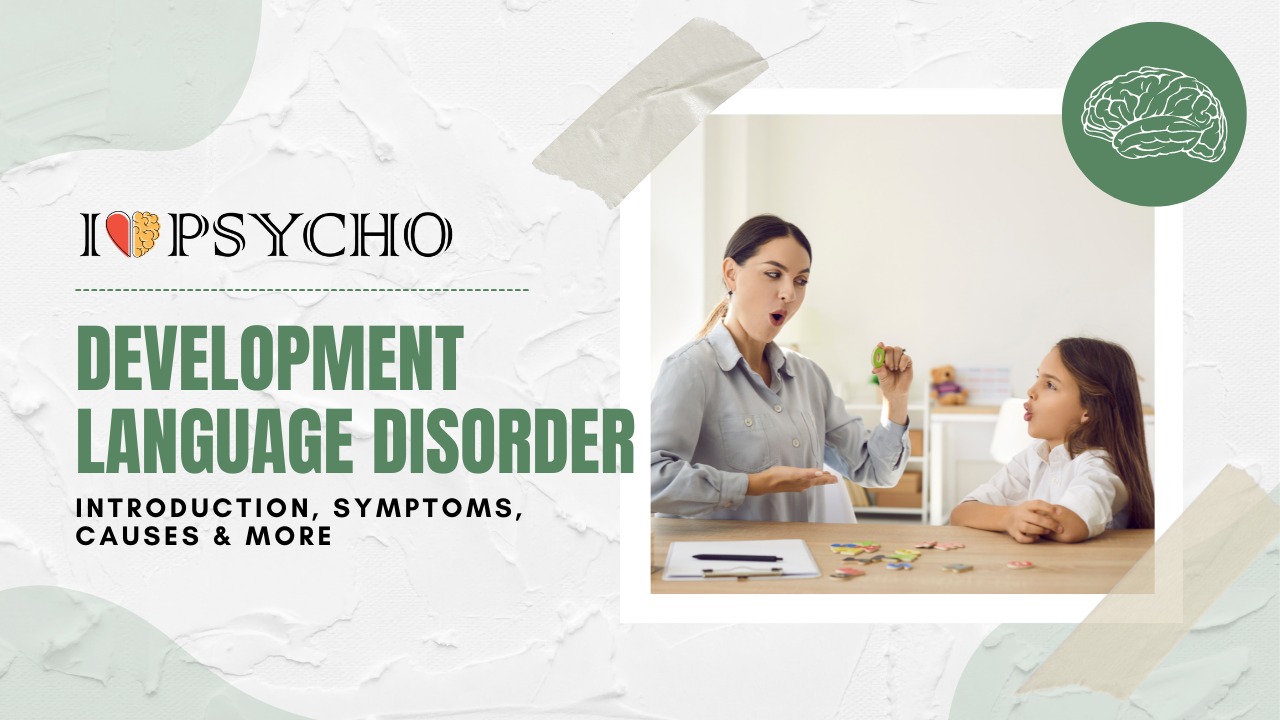INTRODUCTION/ DESCRIPTION
Developmental language disorder (DLD) is identified when a child has problems with language development that continue into school age and beyond.
The language problems have a significant impact on everyday social interactions or educational progress, and occur in the absence of autism spectrum disorder, intellectual disability or a known biomedical condition.
The most obvious problems are difficulties in using words and sentences to express meanings, but for many children, understanding of language (receptive language) is also a challenge, although this may not be evident unless the child is given a formal assessment.
Using language is a skill that allows us to share our ideas and feelings, to learn in school, and to understand the world around us.
Unfortunately, using and understanding language is not easy for everyone, especially for people with developmental language disorder.
DLD is a hidden but very common condition affecting about 1 out of 15 children.
Children with DLD have language abilities that fall behind those of other children their age, even though they are often just as smart.
Having trouble with language means that children with DLD may have difficulty socializing with their classmates, talking about how they feel, and learning in school.
Throughout history, language problems in children have been given many different names.
For example, these children have been said to have a “specific language impairment,” a “language delay,” or a “language disorder,” among other labels.
The experts agreed that the term “language disorder” should be used to describe severe language problems that will most likely not go away.
These language problems make it hard for children to communicate or to succeed in school.
Many children have a language disorder along with another disability, like Down syndrome or autism spectrum disorder.
Other children, however, could have a language disorder without having any other disability.
For these children, the experts agreed that the label “developmental language disorder” should be used.
SIGNS/SYMPTOMS
Language disorder is often noticed in childhood first. Your child may overuse “um” and “uh” because they cannot recall the right word.
Other symptoms include:
Reduced vocabulary in comparison to other children of the same age
Children with receptive language disorder have trouble understanding language.
They have trouble grasping the meaning of words they hear and see.
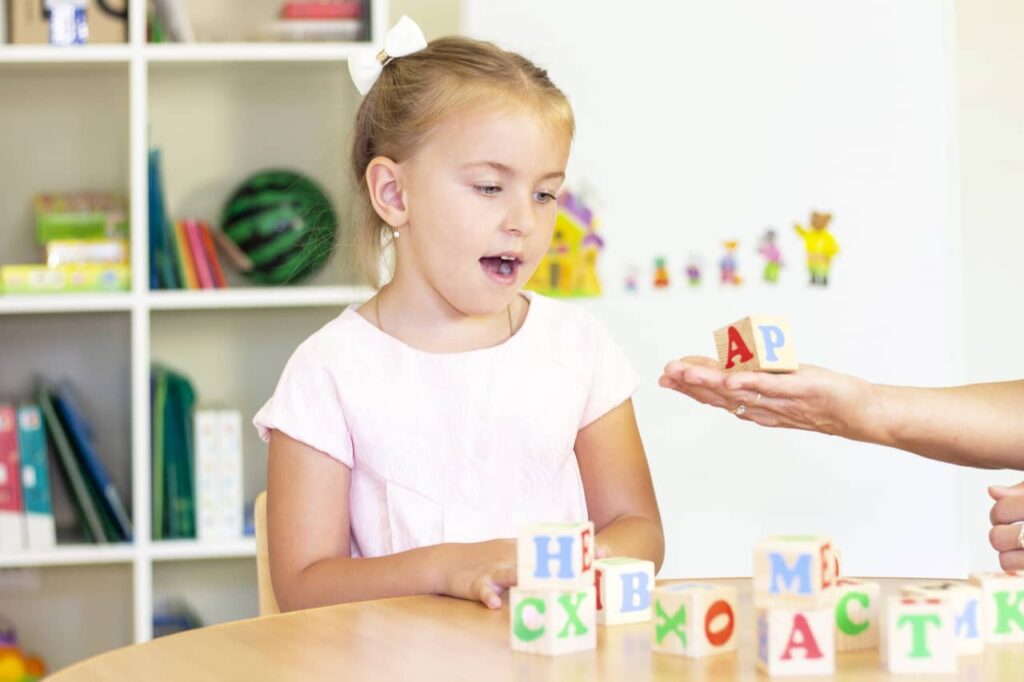
This includes people talking to them and words they read in books or on signs. It can cause problems with learning.
limited ability to form sentences
Some people with aphasia have difficulty in only one area of communication, such as trouble putting words together into meaningful sentences, trouble reading, or difficulty understanding what others are saying.

More commonly, people with aphasia are limited in more than one communication area.
Reduced ability to have a conversation
Aphasia results from damage to one or more of the areas of the brain responsible for language.

Aphasia can occur suddenly, such as after a stroke (most common cause) or head injury or brain surgery, or may develop more slowly, as the result of a brain tumor, brain infection or neurological disorder such as dementia.
Leaving words out

Aphasia is a communication disorder that makes it hard to use words. It can affect your speech, writing, and ability to understand language.
Saying words in the wrong order

Children suffering from this disorder makes it hard for them to use words in a proper manner. They usually say it in wrong order.
Repeating a question while thinking of an answer
Many children with language delays have difficulty learning to answer questions.

Children with this disorder repeat the last few words of the question rather than answering.
Confusing tenses (for example, using past tense instead of present)
A child may not be able to form a long sentence and might omit words or use them in the wrong order. They might also confuse tenses. For example, they might say “I jump” instead of “I jumped.”

Some of these symptoms are part of normal language development. However, your child may have a language disorder if several of these issues are persistent and don’t improve.
CAUSES
Language delays in children have many possible causes. In some instances, more than one factor contributes to a language delay. Some common causes include the following:
Hearing impairment
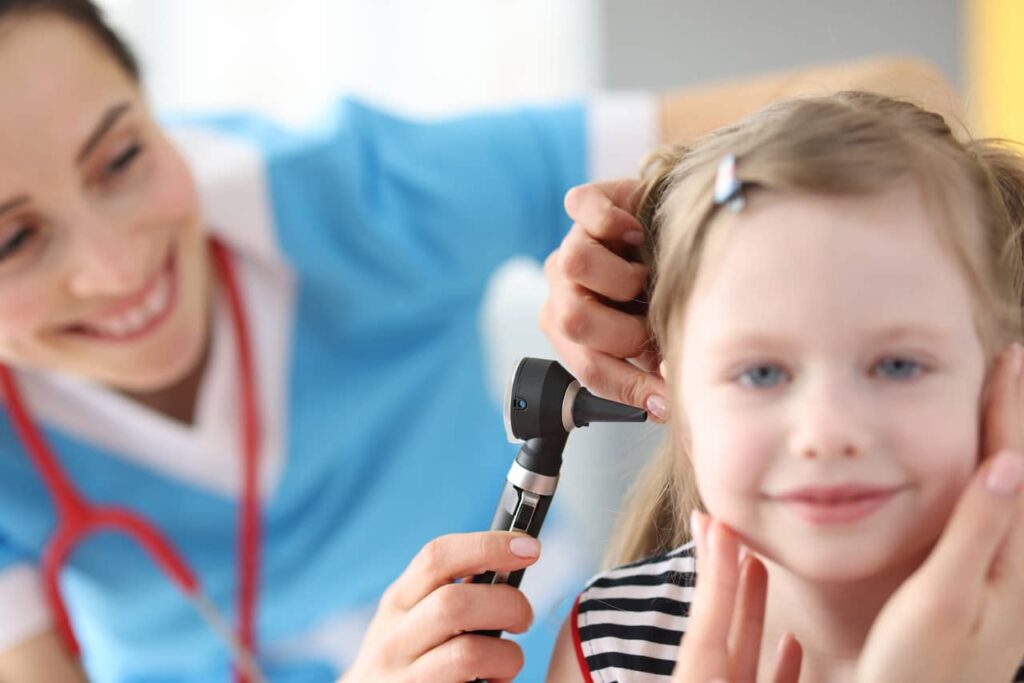
It’s common for children who have a hearing impairment to have a language impairment as well. If they can’t hear language, learning to communicate can be difficult.
Autism

While not all children with autism have language delays, autism frequently affects communication.
Intellectual disability

A variety of intellectual disabilities can cause language delays. For instance, dyslexia and other learning disabilities lead to language delays in some cases.
Several psychosocial issues
These can cause language delays, as well. For example, severe neglect can lead to problems with language development.
Risk factors for language delay
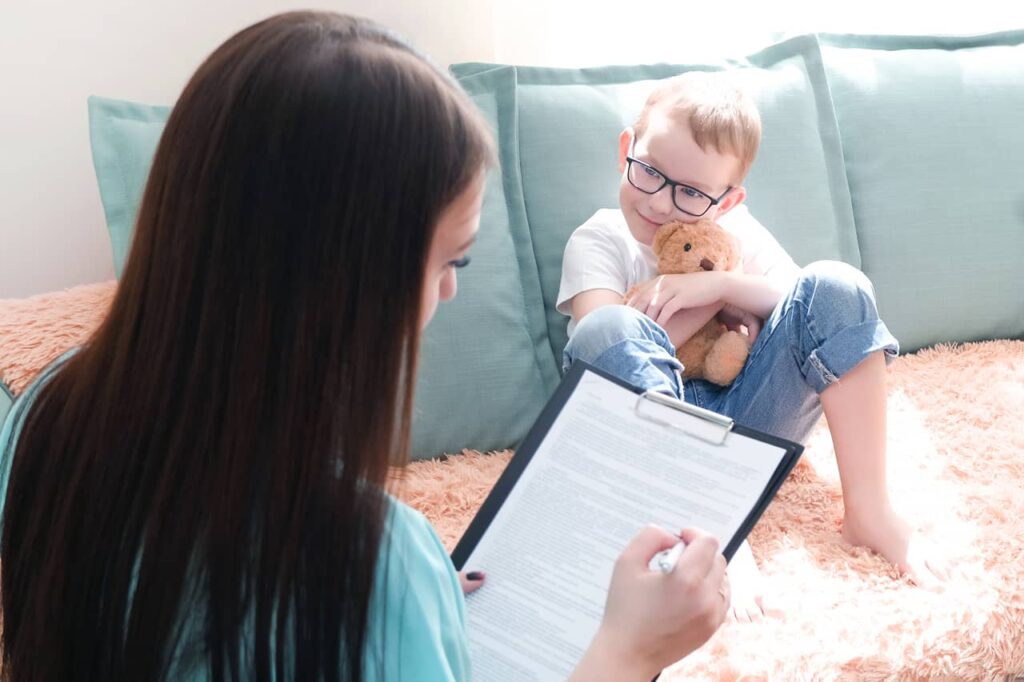
Potential risk factors for speech and language problems include:
- being male
- being born prematurely
- having a low birth weight
- having a family history of speech or language problems
- having parents with lower levels of education
Language disorder isn’t necessarily related to a lack of intelligence. Experts try to identify the cause when language development doesn’t happen naturally.
DIAGNOSIS
If a doctor, teacher, or parent suspects that a child has DLD, a speech-language pathologist (a professional trained to assess and treat people with speech or language problems) can evaluate the child’s language skills.
The type of evaluation depends on the child’s age and the concerns that led to the evaluation. In general, an evaluation includes:
- Direct observation of the child.
- Interviews and questionnaires completed by parents and/or teachers.
- Assessments of the child’s learning ability.
- Standardized tests of current language performance.
These tools allow the speech-language pathologist to compare the child’s language skills to those of same-age peers, identify specific difficulties, and plan for potential treatment targets.
“You can refer to a psychologist or a psychiatrist if you feel like you have any of those symptoms”.
TREATMENT
The disorder is often treated through the collective efforts of parents, teachers, speech-language pathologists, and other health professionals.
Medical exam

The first course of action is to visit your doctor for a full physical. This will help rule out or diagnose other conditions, such as a hearing problem or other sensory impairment.
Language therapy
The common treatment for language disorder is speech and language therapy.
Treatment will depend on the age of your child and the cause and extent of the condition.
For example, your child may participate in one-on-one treatment sessions with a speech-language therapist or attend group sessions.
The speech-language therapist will diagnose and treat your child according to their deficits.
Early intervention often plays an important role in a successful outcome.

Home care options
Working with your child at home can help. Here are some tips:
- Speak clearly, slowly, and concisely when asking your child a question.
- Wait patiently as your child forms a response.
- Keep the atmosphere relaxed to reduce anxiety.
- Ask your child to put your instructions in their own words after giving an explanation or command.
- Frequent contact with teachers is also important. Your child may be reserved in class and may not want to participate in activities that involve talking and sharing. Ask the teacher about class activities in advance to help prepare your child for upcoming discussions.
Psychological therapy
Having difficulty understanding and communicating with others can be frustrating and may trigger episodes of acting out.
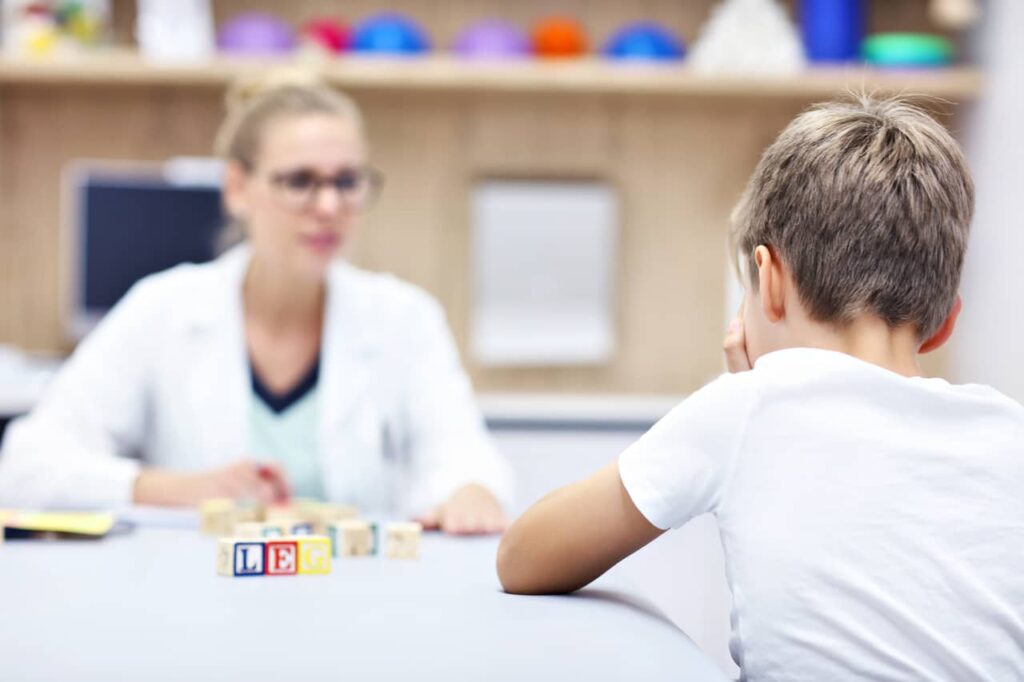
Counseling may be needed to address emotional or behavioral issues.
THE BOTTOM LINE
Your child’s outlook will vary depending on their specific condition and age. Some children catch up to their peers and meet future language milestones.
Other children have more difficulty overcoming language delays and may face problems in later childhood.
Some children with language delays have reading or behavior problems as a result of their delayed language development.
If your child is diagnosed with a language delay, it’s important to start treatment quickly.
Early treatment can help prevent other problems from developing, such as social, learning, and emotional problems.
Further Reading:


